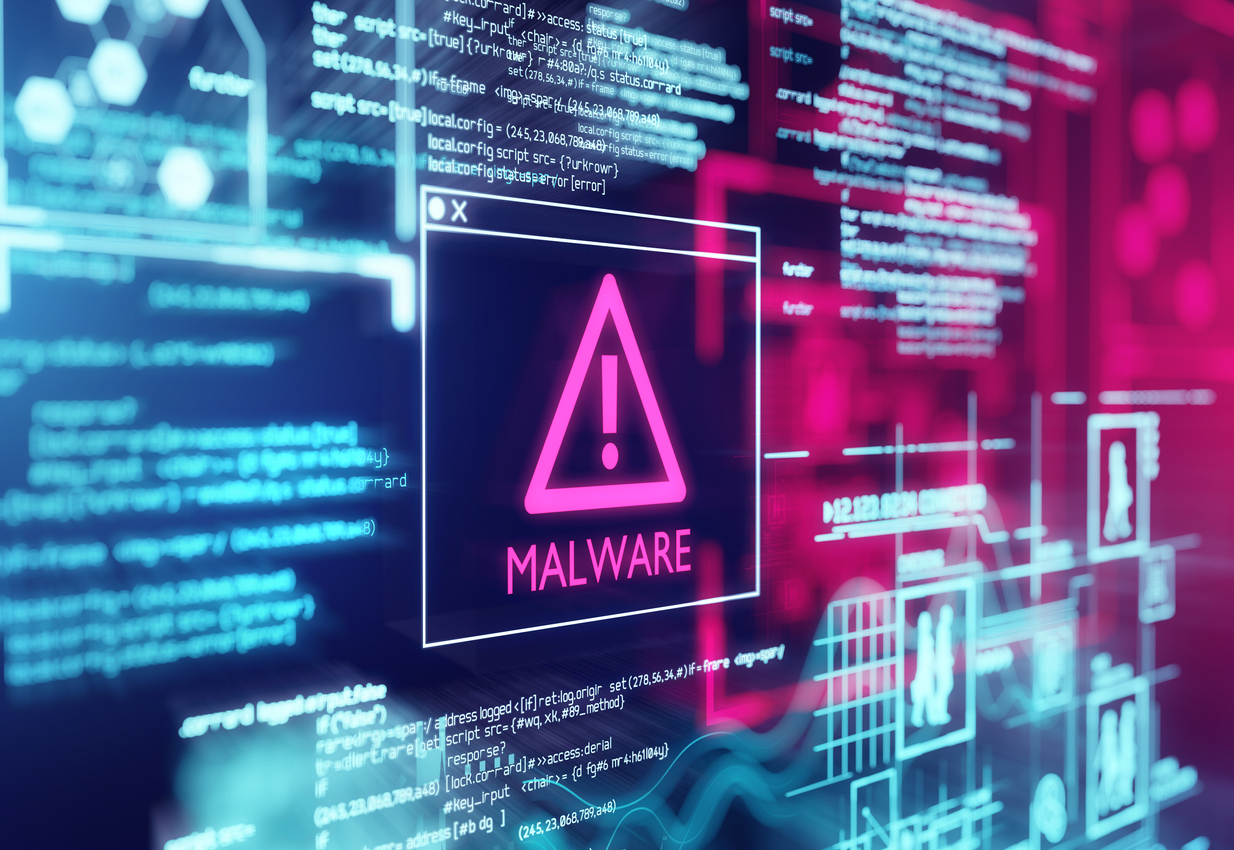Annie Button warns of four key cyber threats that businesses need to remain vigilant to.
Attackers and cybercriminals are getting smarter by the day as technology advances, so businesses need to be one step ahead at all times. These are some of the most common threats that businesses need to be familiar with to protect themselves against.
Phishing
By far the most damaging and widespread threat facing businesses is phishing attacks, which account for the vast majority of cybersecurity attacks that businesses face and result in billions in financial losses. Phishing involves the attacker pretending to be a trusted contact, which leads the user to click on a malicious link or download a file because they believe the sender to be genuine. This then gives the attacker access to account details, sensitive data and credentials.
Phishing is now a sophisticated act that requires attackers to be evermore convincing in order to get the information they want. But they can be difficult to combat, which is why they’re such a huge threat to businesses. Businesses need to invest in security awareness training and education to ensure staff know what to look for and have protocols in place to prevent attacks.
Malware
Malware encompasses a host of cyber threats, from viruses and trojans, that work via malicious code to gain access to data and networks. Malware comes in many forms, such as spam emails, malicious downloads or connecting an infected device to your system. Malware attacks are incredibly damaging to businesses as they can lead to the need for costly repairs to devices and equipment, as well as providing attackers with access to sensitive data which puts both customers, employees and your reputation at risk.
They can be prevented by having strong defences in place, from web security that stops users from visiting malicious pages and sites, and investing in preventative services which will identify threats before it’s too late.
Cybersecurity specialists Redscan explain the importance of early detection: “as threats evolve, history shows that organisations cannot afford to be complacent. The rapid rise in the use of cloud services and applications is creating greater potential for misconfigurations. A failure to undertake regular assessments can be dangerous”.
Insider threats
Unfortunately, insider threats are one of the primary risks that businesses face when it comes to cybersecurity. In fact, since 2020, statistics show that insider threats are more common than external threats. This is when the risk to the organisation is caused by the actions of employees, contractors or associates. Through insider actions, critical data about the company can be gained, whether it’s through mere carelessness or malice.
Insider threats put staff, customers and a business’ reputation at risk, as well as leading to financial damage in many cases. In many businesses, staff often have access to accounts that they ultimately don’t need to, which only increases the risk if such access falls into the wrong hands.
So, businesses need to take precautions to protect information and database access. Companies can block insider threats by having a strong culture of security awareness in the organisation which should be ongoing and maintained as part of the onboarding process for new staff too. This helps to minimise risks caused by ignorance and carelessness, and helps staff to spot attack attempts early on before data or networks have become compromised.
Ransomware
Ransomware attacks hit thousands of businesses each year, but they’ve become a lucrative form of attack for cybercriminals and, as a result, have become more common. This type of attack involves encrypting business data so that it can’t be used or accessed by the company. The attacker can then force the company to pay them in order to unlock the data, which puts businesses in a difficult position of either losing huge sums of money or losing the data. The healthcare sector is particularly prone to this type of attack as it can be damaging to the business’ reputation as well as from a financial perspective.
To prevent ransomware attacks, businesses need to have endpoint protection in place to enable them to quickly detect attacks and mitigate the risks as soon as possible. It’s also important to have cloud back-up in place to protect company data against loss and provide peace of mind that copies of the data are secure. This way, in the event of an attack, companies can recover their data swiftly without needing to pay ransoms.
Final thoughts
As technology evolves and attackers become better equipped to gain access to businesses in more sophisticated and subtle ways, companies need to be smarter about how they protect themselves to prevent cybersecurity threats from ruining their business. Having a comprehensive security process in place will ensure you’re protected from all sides, from having early detection against attempted attacks to keeping staff alert to potential risks.










